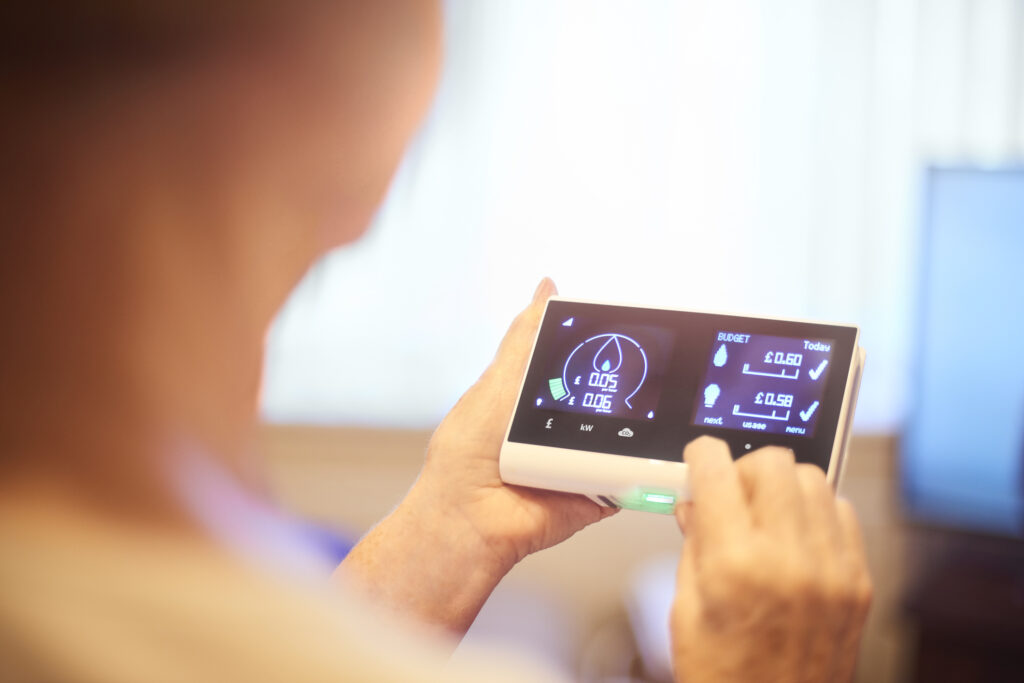The rollout of smart meters across the UK will come in after deadline and over budget, according to a damning report from the National Audit Office, adding yet more pressure on the government to address its strategy.
The NAO has concluded that the number of smart meters installed by 2020 will fall “materially short” of the government’s ambitions, citing plans submitted to Ofgem by energy suppliers. These showed that up to 75% of homes and businesses are likely to have had smart meters installers owing to limited consumer interest and delays in the development of second generation SMETS2 meters.
The report also claims that the cost of the £11 billion programme has already increased by at least £500 million since the last forecasts were issued by the Department of Business, Energy and Industrial Strategy.
The added costs are said to stem from the technology solutions expected to be needed to provide smart meters in the final 3.5-5% of properties and the costs of Smart DCC, the company established to manage the data and communications network connecting smart meters to energy suppliers, network operators and other authorised service users of the network.
The report was also riddled with criticisms of how the government has handled the roll out, particularly its decisions over the move from SMETS1 to SMETS2.
By staging the rollout strategy combined with delays in the implementation of SMETS2 into the DCC, 12.5 million first generation meters have been installed compared to an original expectation of 5.4 million set in 2013.
These have been beset with issues related to interoperability, with the NAO suggesting that around 70% of SMETS1 meters ‘go dumb’ when consumers switch supplier. In August, BEIS confirmed to Current± that almost 1 million had already lost their smart functionality; a fact that risks the undermining the intention to increasing switching in pursuit of better value for money, the NAO has claimed.
BEIS has previously defended this as a “temporary problem” to be solved when the meters are enrolled into the DCC. However, the NAO has said the department has yet to attempt this and it is uncertain that such action will work as intended.
“The department should be cautious about suggesting that the successful enrolment and adoption of all SMETS1 meters is inevitable,” the report warns.
It adds that BEIS has taken “an optimistic view of the risks and challenges” associated with these meters, after finding no evidence before March 2018 that enrolment and adoption may be difficult. At this point, the department described the activity as “technically and commercially complex”, with the start of enrolment postponed to May 2019.
In addition, the NAO has claimed that it may take years before it is known if the SMETS2 system works in its entirety, with particular reference to prepayment customers and those in the North of England and Scotland where problems integrating smart meters with the DCC infrastructure has already been seen.
The same uncertainty hangs over the cost savings for both industry and consumers due to the mix of first and second generation meters operating in the market. BEIS is expected to carry out a new cost–benefit analysis in 2019.
BEIS has defended the rollout, saying it represented a good return on investment by taking £300 million off consumer bills in 2020 alone, rising to more than £1.2bn per year by 2030, an average annual saving of £47 per household.
Addressing ‘inconvenient truths’
The NAO concludes by encouraging the team behind the rollout to “not become defensive, and resistant to inconvenient truths” laid out in its report, and take action on a series of measures.
This includes making an assessment of the value for money of leaving the 2020 deadline in place compared with adopting a new deadline, heaping more pressure on calls previously made by Citizens Advice to extend the deadline.
BEIS has continued to resist such suggestions, with energy and clean growth minister Claire Perry saying: “Millions have already chosen to have a smart meter and take control of their energy use to cut their bills. We’ve said everyone will be offered a smart meter by the end of 2020 to reap these benefits and we will meet that commitment.”
The NAO also suggests drawing up contingency plans for maximising value for money in scenarios where the DCC and SMETS2 system encounters further delays or cost increases, and SMETS1 meters are unable to enrol within the DCC.
An “expert independent review” should be commissioned to testing a sufficient cross-section of smart metering set-ups and scenarios to provide reasonable assurance that the SMETS2 system will work as intended for all consumers; while greater monitoring of actual energy savings that smart meters achieve should be initiated.
The report also calls for Ofgem to work with the Department to improve the transparency of DCC costs.
Amyas Morse, the head of the NAO, said: “Costs are rising, and timescales slipping, but smart meters can still succeed over time. BEIS has taken most of the decisions that matter on the programme so far. They now need to take responsibility for getting it back on track and protecting the interests of consumers who will ultimately meet the bills.”
Rachel Reeves, chair of the BEIS select committee, agreed and said: “The NAO’s report highlights the massive delays and problems associated with the roll-out of smart meters. Costs are rising, and the 2020 target will not be met.
“The department for business, energy and industrial strategy have serious questions to answer about their management of the smart meter roll-out programme and, as a Committee, we will be keen to examine in our evidence hearing in the New Year whether it is feasible, desirable and cost-effective to continue to plough ahead with the Government’s 2020 target.”
The committee will take evidence on smart meters on January 9 2019.





